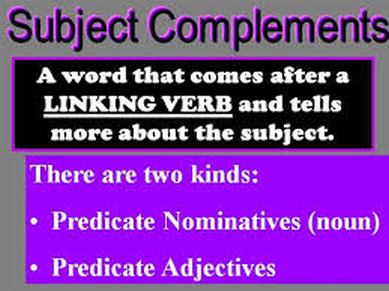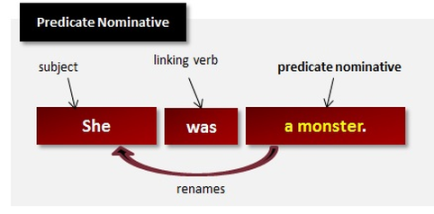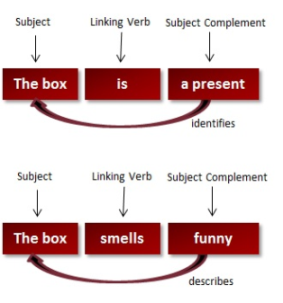- HOME
- INTRO TO THE FORUM
- USE AND MISUSE
- BADLY WRITTEN, BADLY SPOKEN
- GETTING
TO KNOW ENGLISH - PREPARING FOR ENGLISH PROFICIENCY TESTS
- GOING DEEPER INTO ENGLISH
- YOU ASKED ME THIS QUESTION
- ADVOCACIES
- EDUCATION AND TEACHING FORUM
- ADVICE AND DISSENT
- MY MEDIA ENGLISH WATCH
- STUDENTS' SOUNDING BOARD
- LANGUAGE HUMOR AT ITS FINEST
- THE LOUNGE
- NOTABLE WORKS BY OUR VERY OWN
- ESSAYS BY JOSE CARILLO
- Long Noun Forms Make Sentences Exasperatingly Difficult To Grasp
- Good Conversationalists Phrase Their Tag Questions With Finesse
- The Pronoun “None” Can Mean Either “Not One” Or “Not Any”
- A Rather Curious State Of Affairs In The Grammar Of “Do”-Questions
- Why I Consistently Use The Serial Comma
- Misuse Of “Lie” And “Lay” Punctures Many Writers’ Command Of English
- ABOUT JOSE CARILLO
- READINGS ABOUT LANGUAGE
- TIME OUT FROM ENGLISH GRAMMAR
- NEWS AND COMMENTARY
- BOOKSHOP
- ARCHIVES
Click here to recommend us!
GOING DEEPER INTO LANGUAGE
When words can either be nouns or adjectives
Let me share with you two interesting questions about English usage that were posed to me in Jose Carillo’s English Forum several years back:
Here’s the first from a Forum member who goes by the username Sky2:
“Which of these sentence pairs are correct? (1) ‘We are family’ or ‘We are a family?’ (2) ‘They are family’ or ‘They are a family’? (3) ‘They are couple’ or ‘They are a couple’?”



CAN YOU FIND THE STRUCTURAL MATCH IN THE SCHEMATIC CHARTS ABOVE
FOR THE "WE ARE (FAMILY, A FAMILY)" TEST SENTENCE?
I explained to Sky2 that both sentences in Items 1 and 2 are grammatically correct. In the sentence “We are family,” the word “family” is functioning as an adjective; it works as a adjective complement to the subject “we.” On the other hand, in “We are a family,” the word “family” is functioning as a noun, with “a family” serving as a noun complement to the subject “we.” The meaning of both sentences is practically the same, but “We are family” is more idiomatic than “We are a family.” (The same analysis, of course, applies to the usage of “family” in “They are family” and “They are a family.”)
In Item 3, though, only “They are a couple” is the idiomatically correct usage. The construction “They are couple” isn’t used in speech in the same way as “We are family” or “They are family.” Native English speakers just don’t have the same level of comfort when saying “They are couple” as when saying “We are family” or “They are family,” so “They are couple” hasn’t become acceptable in conventional speech.
And here’s the next question, this time from Forum member royljc:
“Hi, I ran into the confusing question below. Can you tell me why selection (a) is the correct answer? I have not seen this type of sentence before.
“‘_______ a rainy day, we had to abandon the match.’
“(a) It being, (b) Being, (c) Having been, (d) It been.”

The sentence “It being a rainy day, we had to abandon the match” is the only possible correct answer here. It’s a grammatically airtight construction that uses the pronoun “it” as the subject in a sentence that has the progressive form of “be” as the verb and “a rainy day” as subject complement. Practically, that sentence has the same sense as “This being a rainy day, we had to abandon the match,” except that in this sentence, the pointing adjective “this” has taken the place of “it.”
On the other hand, if any of the three other answer choices is used, a grammatically or structurally wrong sentence would result. Answer “(b) Being” is wrong because in the sentence “Being a rainy day, we had to abandon the match,” the modifying phrase “being a rainy day” would be a dangling modifier; it couldn’t logically modify the pronoun “we” in the main clause. Answer “(c) Having been” is also wrong because “Having been a rainy day” would similarly be a dangling modifier in the absence of a noun that it can logically modify. And answer choice “(d) It been” is also wrong because “been” alone is the wrong form of the present perfect tense for “be”; the correct form is “has been.” (But even if “has been” is used, the construction would still be wrong because it would be a run-on or fused sentence: “It has been a rainy day, we had to abandon the match.”)
We must take note that the “it” in the correct answer for the sentence in question is an authentic neuter pronoun that refers to the noun “day.” This is in contrast to the expletive “it” in the sentence “It is raining, so we had to abandon the match.” Here, “it” is a syntactic expletive, a filler subject used by the impersonal verb “is” to express a condition or action without reference to an agent. As such, “it” performs a syntactic role that contributes nothing to meaning.
This essay, 719th of the series, first appeared in the column “English Plain and Simple” by Jose A. Carillo in the December 4, 2010 issue of The Manila Times, © 2010 by the Manila Times Publishing Corporation. All rights reserved.
Click to post a comment or read comments
View the complete list of postings in this section
(requires registration to view & post)


